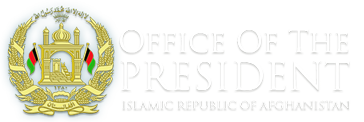
Washington DC: - Deputy Chief of Mission M. Ashraf Haidari participated in the 5 th meeting of the Joint US-Russia Working Group on Afghan Narcotrafficking, convened by the EastWest Institute (EWI) on March 2-6, 2015. The key objective of the Working Group is to help raise awareness about the global challenge of drug production in Afghanistan, informing policymakers in the US, Russia, the region, and the rest of the world of the lessons to be learned (for effective policy formulation henceforth) from more than 13 years of international efforts, in support of the Afghan government, to fight against drug trafficking from Afghanistan.
The Group’s meetings, which took place in Washington-DC and New York City, were attended by senior officials and experts from the White House Office of National Drug Control Policy; the Department of State Bureau of International Narcotics and Law Enforcement; Drug Enforcement Administration; the staff of the US Senate Caucus on International Narcotics Control; the United Nations Office on Drugs and Crime; and the representatives of the Permanent Missions of Afghanistan, China, Iran, Kazakhstan, and Russian to the United Nations.
Mr. Haidari thanked the United States for its continued, multifaceted support in the fight against narcotics production in and trafficking from Afghanistan. With the US assistance over the past 14 years, he noted that Afghanistan had been able to establish a number of institutions, including the Ministry of Counter-Narcotics and the Counter-Narcotics Police, to implement Afghanistan’s comprehensive drug control strategy with cross-cutting objectives.

“Despite many tactical achievements—including frequent seizing large amounts of drugs and destroying them, while arresting and imprisoning a number of major drug traffickers—Afghanistan hasn’t been able to eliminate the global problem of drugs,” Mr. Haidari noted in his opening and closing remarks. He argued that global demand for illicit narcotics, the prevailing insecurity and abject poverty, which were intertwined in the Afghan context, as well as a lack of results-oriented regional and international cooperation were responsible for the continued rise in the production of narcotics in Afghanistan.
Moreover, Mr. Haidari noted that non-state actors, including organized criminal networks and terrorist groups, some of which also enjoyed support from state actors in the neighborhood of Afghanistan, were raising approximately $65 billion a year from narcotics produced in the southwest and east of Afghanistan, bordering Pakistan. “But international financial assistance to Afghanistan against this complex global problem pales in comparison with the billions made by illicit networks in our region and beyond,” he pointed out.
While encouraging cooperation among the countries of the region, including between Iran and the US, in the fight against the inter-related problem of drug trafficking, money laundering and terrorism finance, Mr. Haidari noted the importance of adequate international investment in the infrastructure, agriculture, and energy sectors of Afghanistan to enable the country to achieve economic self-reliance in the following decade. “Without sustainable security and jobs for our youthful population, it’s hard to imagine how we could eliminate the problem of drug production in and trafficking from Afghanistan,” added Mr. Haidari.
Mr. Haidari thanked the EastWest Institute for its results-oriented approach to the meetings of the Working Group, including a wide range of expertise from the relevant institutions of the concerned governments and multilateral organizations, as well as Afghan participants. “I hope that all stakeholders will take the recommendations of this capable Group seriously, and work much more proactively and collaboratively work with the Afghan government to address the global problem of drug trafficking from our country,” Mr. Haidari said in his concluding remarks.

Mr. Haidari has extensively written on the illicit production and trafficking of narcotics in Afghanistan, based on the experience of other major drug producing countries. His last article, in response to the 2013 UNODC annual survey of opium poppy cultivation, was published in the Foreign Policy (link: http://goo.gl/CJWkz9 ), which summarizes most of his interventions in the weeklong meetings of the Working Group.






